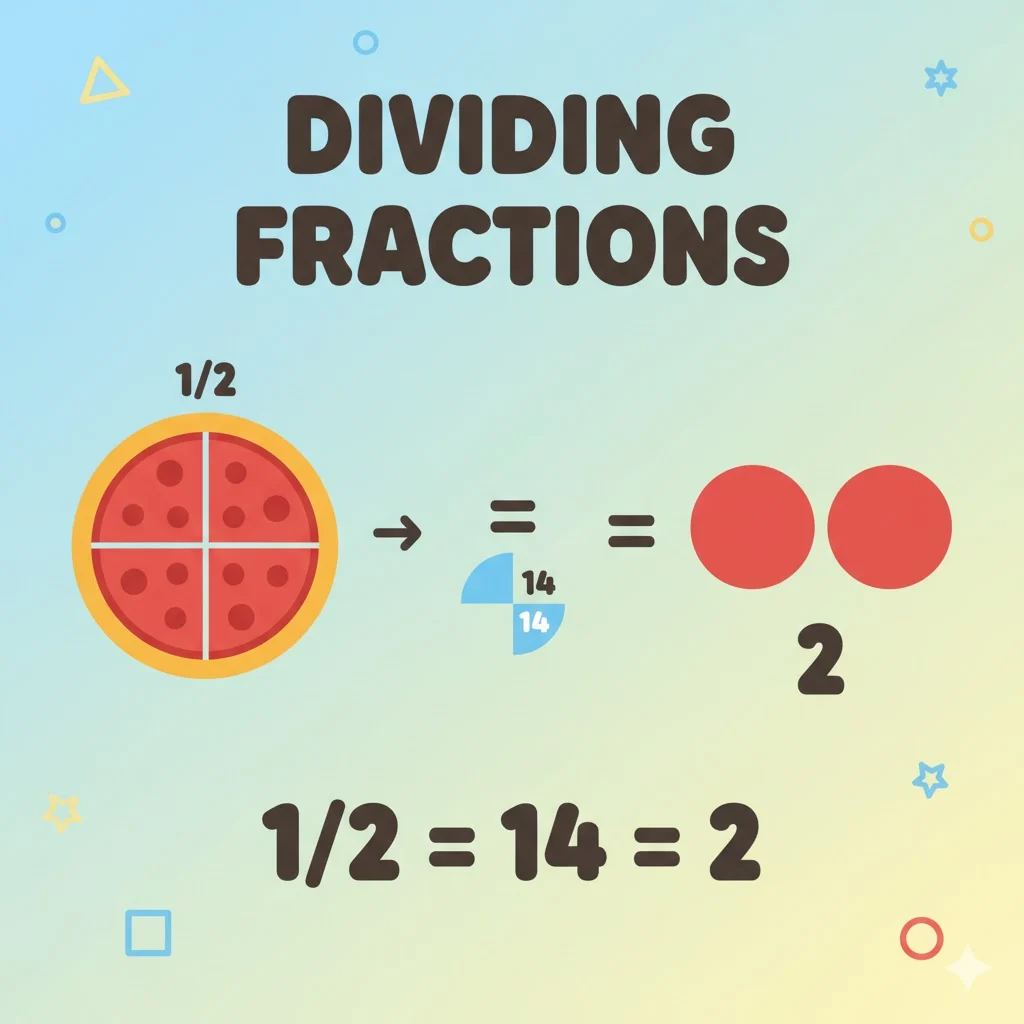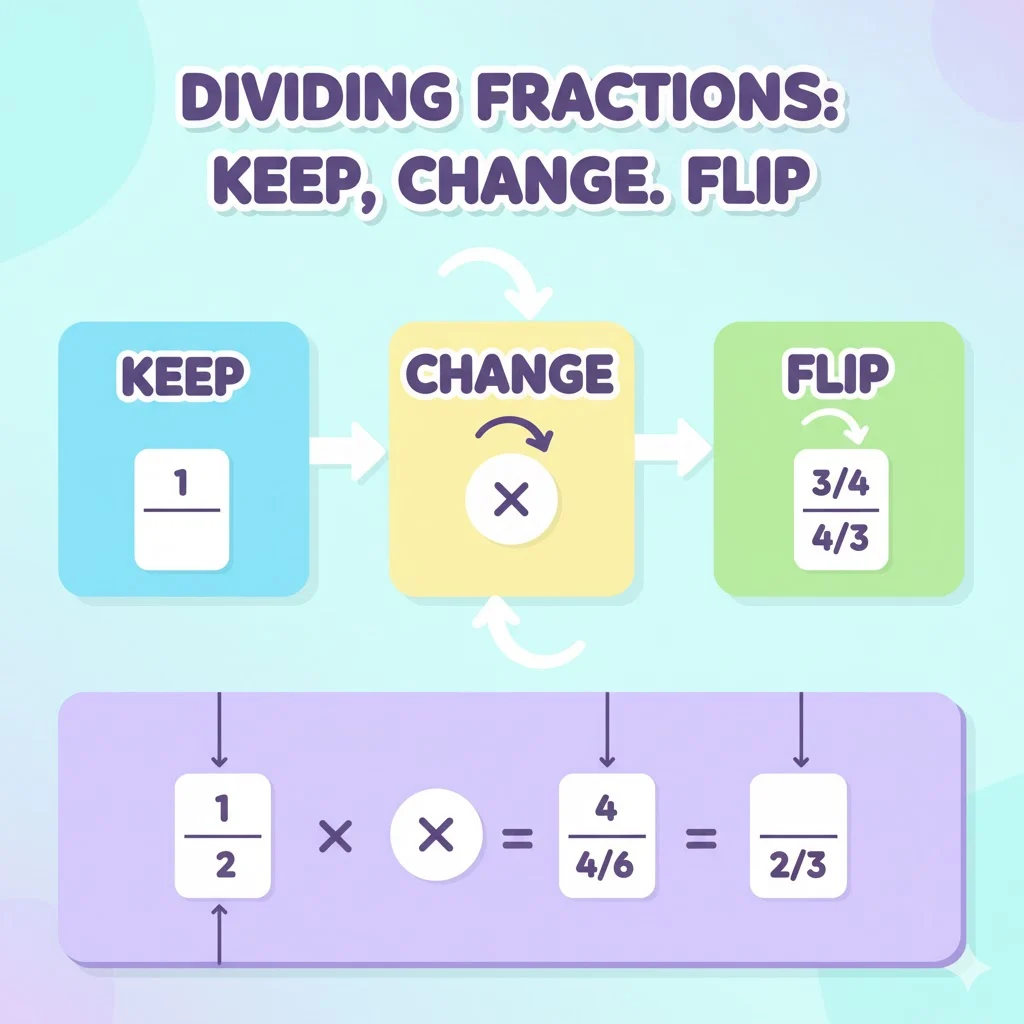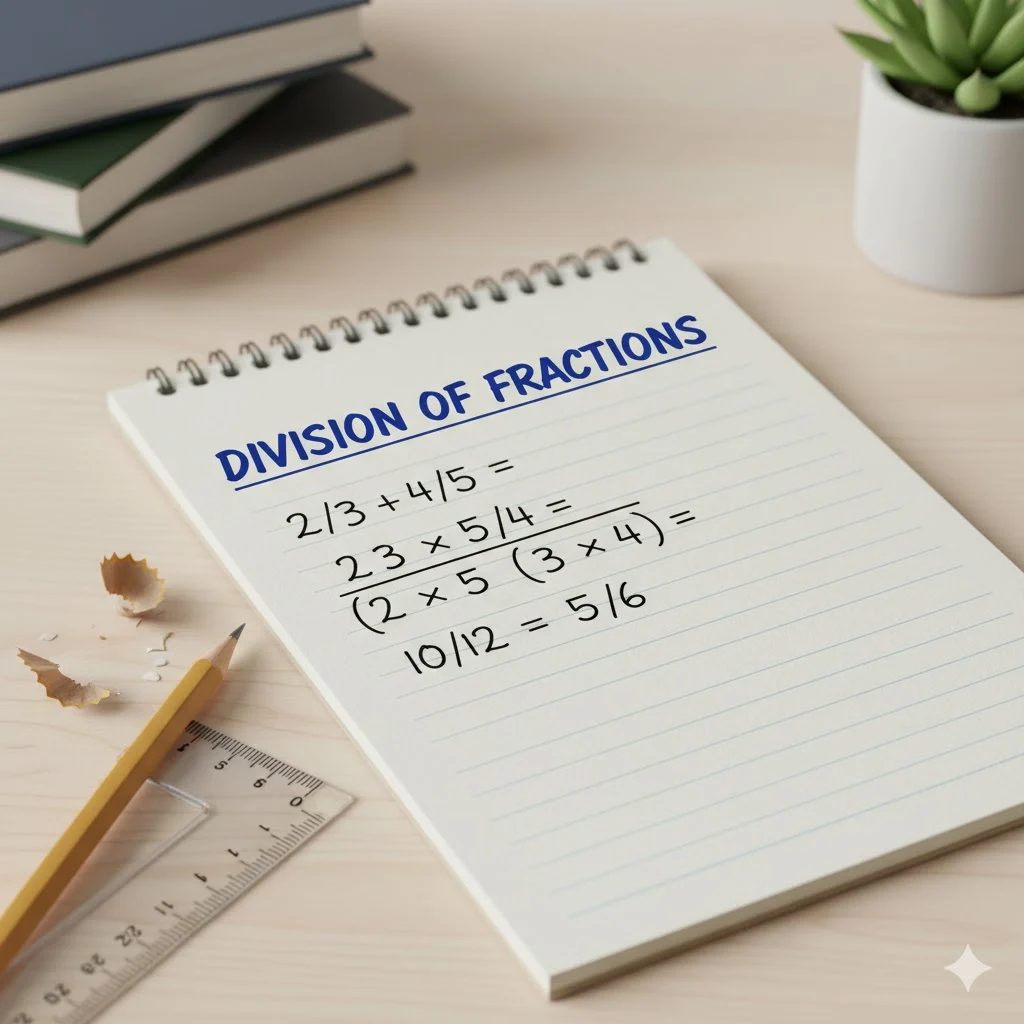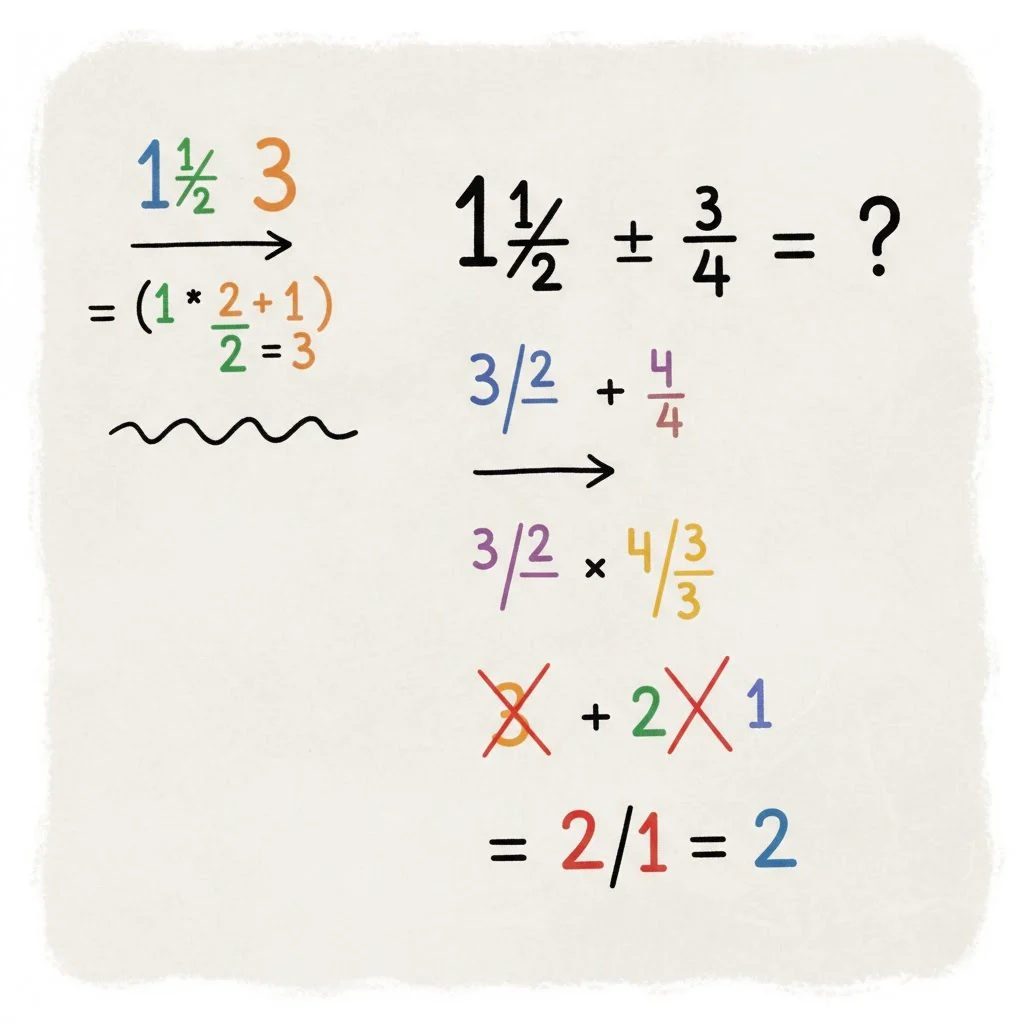Hey there, math explorer! 👋
If you’ve ever wondered “How do I divide fractions?” or found yourself confused by tiny numbers stacked on each other — you’re not alone.
Dividing fractions seems tricky, but once you understand the Keep, Change, Flip rule, it’s as easy as pie 🥧. Whether you’re a student, teacher, or parent helping with homework, this post will help you finally get it.
Here’s what we’ll cover:
- What dividing fractions really means
- The logic behind the process
- The “Keep, Change, Flip” shortcut
- Step-by-step examples
- Dividing mixed numbers
- Common mistakes and real-life applications
- FAQs and practice problems
🧩 What Does Dividing Fractions Mean?
Dividing fractions tells you how many times one fraction fits into another.
Think about it like this:½ ÷ ¼ = ?
You’re asking, “How many one-fourths are in one-half?”
Visually, a ½ slice of pizza can fit two ¼ slices inside it — so the answer is 2.
½ ÷ ¼ = 2
That’s why when dividing by a small fraction, the result is often larger, not smaller — because you’re finding how many smaller parts fit inside a given piece.

🔢 The Simple Trick: Keep, Change, Flip
This is the golden rule for dividing fractions — the one math teachers love:
KEEP – CHANGE – FLIP
Here’s what it means:
- Keep the first fraction as it is.
- Change the division sign (÷) to multiplication (×).
- Flip the second fraction upside down (find its reciprocal).
Now, just multiply like normal. That’s it! 🎯

🧮 Step-by-Step Example
Example 1:2/3 ÷ 4/5
Step 1: Keep the first fraction → 2/3
Step 2: Change ÷ to ×
Step 3: Flip the second fraction → 5/4
Now multiply:2/3 × 5/4 = 10/12
Simplify 10/12 → 5/6
✅ Final Answer: 5/6

🧠 Why Does “Keep, Change, Flip” Work?
At first, it might feel like magic — but there’s solid math logic behind it.
Division means: “How many 4/5s are in 2/3?”
To find that, we convert the question into a multiplication problem that’s easier to solve:
2/3 ÷ 4/5 = 2/3 × 5/4
By flipping 4/5 to 5/4, we find the reciprocal — the value that, when multiplied, equals 1.
In short, dividing by a fraction is the same as multiplying by its reciprocal.

🧮 Example 2: Dividing Mixed Numbers
1½ ÷ ¾
Step 1: Convert mixed numbers to improper fractions.
1½ = 3/2
Step 2: Keep, Change, Flip3/2 ÷ 3/4 = 3/2 × 4/3
Step 3: Multiply
3 × 4 = 12
2 × 3 = 612/6 = 2
✅ Final Answer: 2

💡 Simplify Before You Multiply
Simplifying before multiplying makes your math cleaner and faster.
Example:4/5 ÷ 2/3
→ Keep, Change, Flip → 4/5 × 3/2
Now simplify:
4 ÷ 2 = 2 → 2/5 × 3/1 = 6/5 = 1⅕
✅ Final Answer: 1⅕
🔍 Real-Life Examples of Dividing Fractions
1. Cooking 🍪
You have ¾ cup of sugar and each cookie batch needs ¼ cup.¾ ÷ ¼ = 3
✅ You can make 3 batches.
2. Measuring Wood 🪵
You have a 2-meter plank and want pieces of ½ meter.2 ÷ ½ = 4
✅ You can cut 4 equal pieces.
3. Sharing Drinks 🥤
You have ⅔ of a bottle, and each glass takes ⅙ of a bottle.⅔ ÷ ⅙ = 4
✅ You can pour 4 glasses.
✍️ Practice Problems
- ½ ÷ ⅓ = ?
- ¾ ÷ ⅙ = ?
- ⅖ ÷ ⅘ = ?
- 2⅔ ÷ ⅔ = ?
- 1½ ÷ ¼ = ?
Answers:
1. ½ × 3/1 = 3/2 = 1½
2. ¾ × 6/1 = 18/4 = 4½
3. ⅖ × 5/4 = 20/20 = 1
4. 8/3 × 3/2 = 24/6 = 4
5. 3/2 × 4/1 = 12/2 = 6
⚠️ Common Mistakes Students Make
- ❌ Forgetting to flip the second fraction.
- ❌ Dividing numerators and denominators directly.
- ❌ Not simplifying the final answer.
✔ Always simplify and double-check your steps!
📘 Quick Recap
Steps to Divide Fractions:
- Keep the first fraction.
- Change ÷ to ×.
- Flip the second fraction.
- Multiply across.
- Simplify.
Example:5/8 ÷ 3/4 = 5/8 × 4/3 = 20/24 = 5/6
✅ Final Answer: 5/6
❓ Frequently Asked Questions (FAQs)
1. What’s the easiest way to divide fractions?
Use the Keep, Change, Flip method — it’s simple and foolproof.
2. Why do we flip the second fraction?
Because dividing by a fraction is the same as multiplying by its reciprocal.
3. What if one number is a whole number?
Turn it into a fraction (e.g., 5 = 5/1) and follow the same steps.
4. Should I always simplify my answer?
Yes, always simplify for neat and accurate results.
🏁 Final Thoughts
Dividing fractions isn’t hard — it’s just a pattern. Once you remember Keep, Change, Flip, you’ll never get confused again!
Dividing fractions isn’t about making numbers smaller — it’s about finding how many times one piece fits into another.
So next time you see a problem like ⅔ ÷ ⅖, smile and say:
“Easy! Keep, Change, Flip — and done!” 💪




